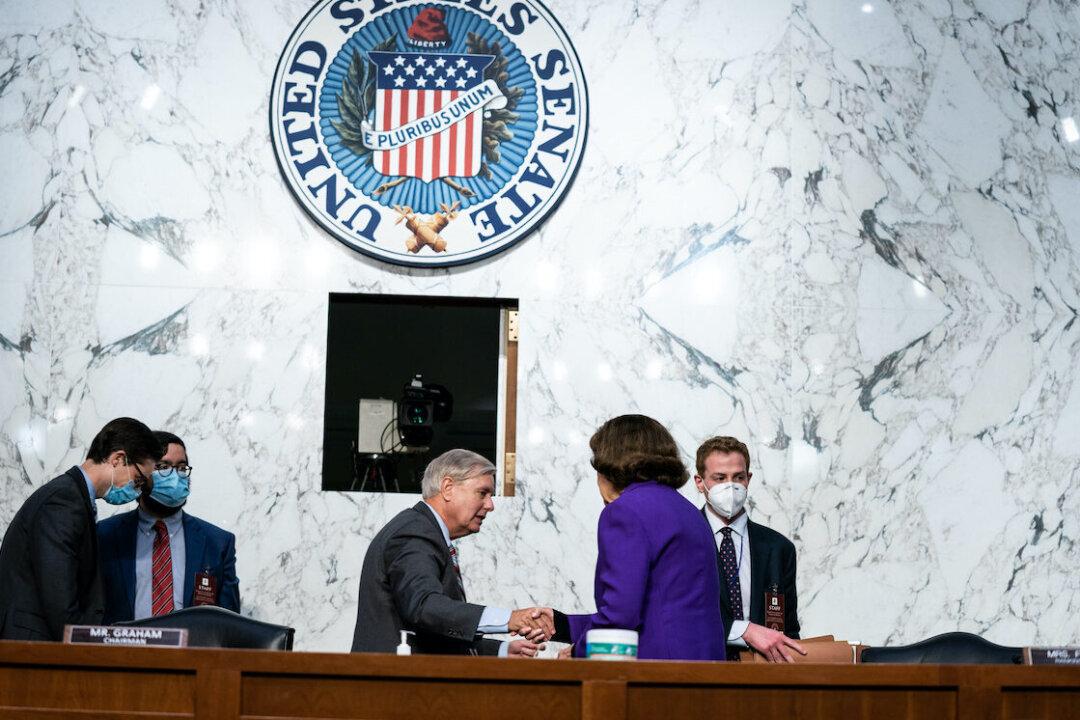Supreme Court nominee Amy Coney Barrett’s confirmation hearings concluded on Thursday with the Republican-controlled Senate Judiciary Committee pushing ahead to advance the judge’s nomination by scheduling a vote.
This was met with resistance from Senate Democrats who moved to indefinitely delay the proceedings, leading to a heated debate on the committee floor. Democrats have been opposed to Barrett’s nomination before the election, arguing that whoever wins the election should be given the opportunity to select the nominee to replace the late Justice Ruth Bader Ginsburg.




